 This syndrome can mimic a panic attack or a heart attack.
This syndrome can mimic a panic attack or a heart attack.
In most cases, hyperventilating is depicted as someone becoming very upset by a certain event on TV. They are then given a paper bag and told to breathe deeply into it to improve their condition. This is a very short time in which to feel better.
The truth of what this syndrome entails isn’t as drastic, quick, or as easily calmed.
A woman came to see us recently complaining of various symptoms, such as chest pain, heart palpitations, and strange sensations down her left arm and into her neck. She said that she felt like she had consumed a lot of energy drinks, when in fact, she had zero.
After performing an electrocardiogram, which is a standard test for the heart, we were able to confirm that her heart was fine. We then conducted an echocardiogram and a stress test.
What she was experiencing was Hyperventilation Syndrome.
- Chest pain (Crushing, squeezing, and even stabbing)
- Fever
- Chills
- Fainting
- Racing heartbeat
- Having a hard time breathing – shortness of breath or feeling like you just can’t get enough air
- Frequent yawning
- Numb feelings in hands and or feet
- Muscle spasms
It can be triggered by stress and anxiety. It can also be caused by the body’s response to certain stimuli.
- Anxiety
- Panic attacks
- Asthma
- Stress
- Worrying
- Exercise
- Side effects of certain drugs
- High altitude
- Head injury
- Shock
- PTSD triggers
Treatment and Relief
- Focus on taking controlled breaths
- For this exercise, you should put your lips into a position that’s similar to how you would blow out birthday candles. Breathe slowly through your nose, and then slowly breathe out through a small opening between your lips. Repeat this exercise until you feel better.
- Limit airflow: breath through one nostril only, and slowly.
- Breathe into a paper bag: This does work but you must do it slowly and repeatedly for 5 to 6 minutes.
If you are experiencing these symptoms, it is important to talk to your doctor about it. Hyperventilation Syndrome is one of the most under-recognized conditions.
Visit WWW.TAMPACARDIO.COM to learn more about our facilities and how we can help.
Never ignore chest pain. If you are not sure of the cause seek medical help immediately.


 What we choose to feed our bodies is important. It is the fuel we run on. It is the building block for new cells to be created. It is what gives us energy, and vitality, and enables us to keep going year after year.
What we choose to feed our bodies is important. It is the fuel we run on. It is the building block for new cells to be created. It is what gives us energy, and vitality, and enables us to keep going year after year.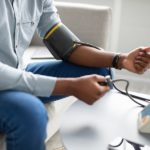
 The Pressure is on!
The Pressure is on!


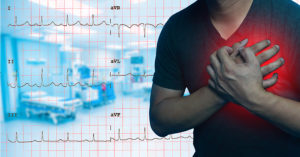 There is a good chance that you will feel a heart arrhythmia at some point in your lifetime. A large percentage of the population will experience abnormal heart beats. Most of the time these off beats are harmless. They can happen in perfectly healthy people who show no sign of heart disease. There are, however, some types of heartbeat abnormalities that can be serious and even potentially deadly. Heart disease also raises the risk of fluctuations.
There is a good chance that you will feel a heart arrhythmia at some point in your lifetime. A large percentage of the population will experience abnormal heart beats. Most of the time these off beats are harmless. They can happen in perfectly healthy people who show no sign of heart disease. There are, however, some types of heartbeat abnormalities that can be serious and even potentially deadly. Heart disease also raises the risk of fluctuations.
 The professional Cardiologists at Tampa Cardiovascular Associates of Tampa Bay, Florida are here for you.
The professional Cardiologists at Tampa Cardiovascular Associates of Tampa Bay, Florida are here for you.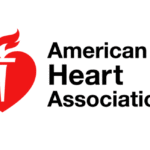
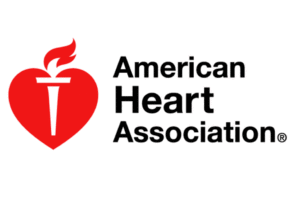 Lifestyle has a huge effect on your health and wellbeing.
Lifestyle has a huge effect on your health and wellbeing.
 Watching someone have a fainting spell can be alarming. They look a little pale, slightly off, and often their eyes will roll back in their heads just before going limp.
Watching someone have a fainting spell can be alarming. They look a little pale, slightly off, and often their eyes will roll back in their heads just before going limp.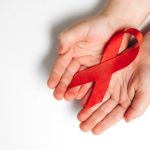
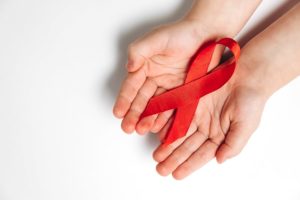 Patients are living longer as HIV treatments progress. They are also living high-quality lives. Modern medicine has miraculously transformed a tragic terminal illness into a manageable condition that can be lived with and kept in check for years and even decades allowing for a longer fuller life.
Patients are living longer as HIV treatments progress. They are also living high-quality lives. Modern medicine has miraculously transformed a tragic terminal illness into a manageable condition that can be lived with and kept in check for years and even decades allowing for a longer fuller life.
 Hypertension has long been known as the silent killer.
Hypertension has long been known as the silent killer.